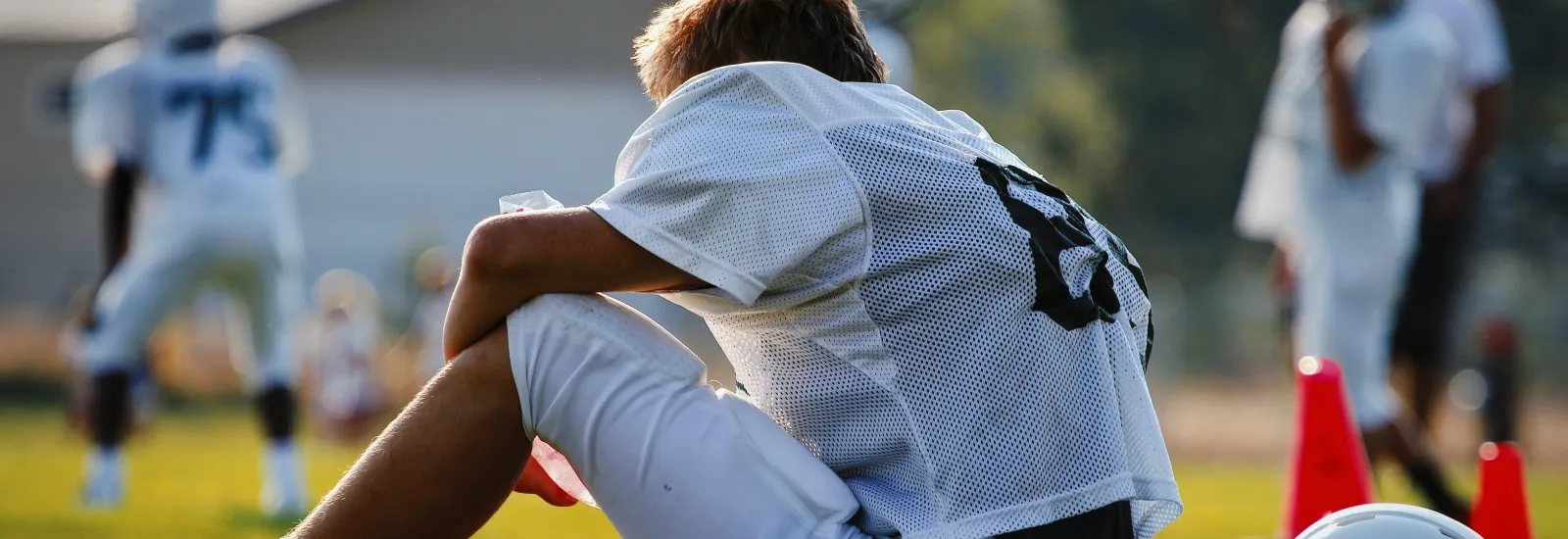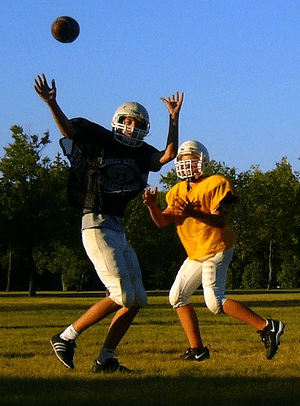
Signs of overtraining and overuse injuries in young athletes
Organized sports can be beneficial to a teenager's growth and development by nurturing social skills discipline conflict resolution sportsmanship and physical fitness — but above all they're fun!
While teens appear to have limitless energy and resiliency their growing bodies are susceptible to overtraining which can be detrimental to their health and cause injuries. Nevertheless parents can encourage a safe athletic experience by watching for signs of overtraining during play.
Overtraining syndrome (OTS) is caused by intensely working the body for too long without allowing enough time for rest and recovery reports the British Journal of Sports Medicine (BJSM). Annually 2.6 million kids under the age of 19 require emergency room treatment for sports-related injuries says Centers for Disease Control and Prevention. Overtraining can be counterproductive to your teen's physical and mental development.
Signs of overtraining
To guarantee athletes stay in their best form physically and mentally both teens and parents should be familiar with the signs of overtraining and how it affects performance. The most notable signs of overtraining are fatigue exhaustion lack of interest in activities mood changes and decreased athletic performance says the American Academy of Pediatrics (AAP).
Overuse injuries
Overuse injuries commonly occur in competitive sports like baseball and basketball but any activity with repetitive motion can cause them. Parents and teens should be mindful of sports-related injuries especially when planning future athletic goals. According to the AAP the most common overuse injuries affect the following:
- Bones
Excessively repetitive activities can lead to broken bones and joint strains which can affect teens for the rest of their lives. - Soft tissue
Muscle and ligament tears can cause teens to require surgery for sports-related injuries like ACL (anterior cruciate ligament; it runs through the knee) rotator cuff and hamstring tears. - Overall well-being
Fatigue can lead to illnesses from decreased immune function as well as difficulty concentrating on schoolwork.
Limiting overtraining
Teen participation in sports is high but along with fun comes risks. Parents can play defense against overtraining by encouraging the following activities recommended by the AAP:
- Rotation
Teens should play multiple sports year-round to decrease their chances of injuries. Athletes who play a variety of sports experience fewer injuries and compete longer in sports than those who specialize in one sport. - Rest
Playing hard requires adequate rest. The AAP recommends limiting participation in any one sporting activity to a maximum of five days a week with at least one day off from physical activity. - Recovery
Athletes should have at least two months off per year from sports to allow for proper rest and recuperation from sport-related injuries and stress.
So if your teen has goals of making the winning shot or crossing the finish line first assure her that the way to win is to train smarter not harder.


